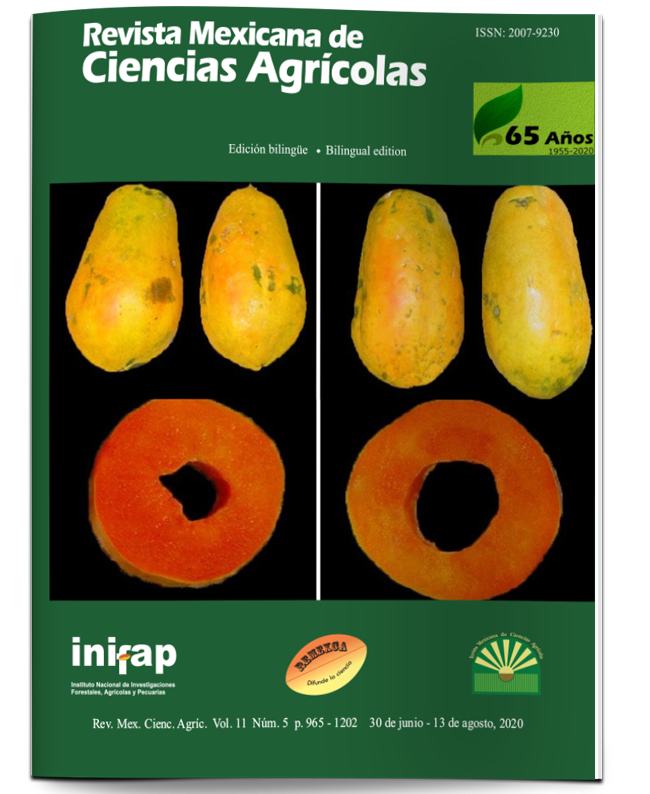Management strategies in mango orchards and their effect on soil quality and productivity in Los Cajones, Michoacán
DOI:
https://doi.org/10.29312/remexca.v11i5.2127Keywords:
organic, organo-mineral, production systemsAbstract
The different management systems and diversity of species in the orchards influence soil fertility and consequently crop productivity, for this reason the objective of the research was to assess fertility, soil quality and biodiversity management under three different mango production systems. The present study was carried out in the town of Los Cajones, Michoacán, in three mango orchards. The first evaluation was made up of a guide that integrated items of soil quality and biodiversity management applied to producers. The second evaluation was made by laboratory analysis of the soils of each orchard. The results of soil quality and biodiversity management indicate that the organic management system obtained the best values, as a result of the practices and structure of the orchard, while the orchard under conventional management presented the lowest values in both indicators. However, organo-mineral management obtained the best results in laboratory analyzes for the variables organic carbon (2.68%), organic matter (4.66%), nitrogen (1.59%), phosphorus (16.48 g kg-1) and exchange capacity. cationic (29.18 cmol+ kg-1), followed by organic management. Organo-mineral fertilization promotes a better availability of nutrients to be used by the crop, in addition to reducing the amount of chemical inputs, promoting rational use.
Downloads
Published
How to Cite
Issue
Section
License
Copyright (c) 2020 Revista Mexicana de Ciencias Agrícolas

This work is licensed under a Creative Commons Attribution-NonCommercial 4.0 International License.
The authors who publish in Revista Mexicana de Ciencias Agrícolas accept the following conditions:
In accordance with copyright laws, Revista Mexicana de Ciencias Agrícolas recognizes and respects the authors’ moral right and ownership of property rights which will be transferred to the journal for dissemination in open access. Invariably, all the authors have to sign a letter of transfer of property rights and of originality of the article to Instituto Nacional de Investigaciones Forestales, Agrícolas y Pecuarias (INIFAP) [National Institute of Forestry, Agricultural and Livestock Research]. The author(s) must pay a fee for the reception of articles before proceeding to editorial review.
All the texts published by Revista Mexicana de Ciencias Agrícolas —with no exception— are distributed under a Creative Commons License Attribution-NonCommercial 4.0 International (CC BY-NC 4.0), which allows third parties to use the publication as long as the work’s authorship and its first publication in this journal are mentioned.
The author(s) can enter into independent and additional contractual agreements for the nonexclusive distribution of the version of the article published in Revista Mexicana de Ciencias Agrícolas (for example include it into an institutional repository or publish it in a book) as long as it is clearly and explicitly indicated that the work was published for the first time in Revista Mexicana de Ciencias Agrícolas.
For all the above, the authors shall send the Letter-transfer of Property Rights for the first publication duly filled in and signed by the author(s). This form must be sent as a PDF file to: revista_atm@yahoo.com.mx; cienciasagricola@inifap.gob.mx; remexca2017@gmail.
This work is licensed under a Creative Commons Attribution-Noncommercial 4.0 International license.



